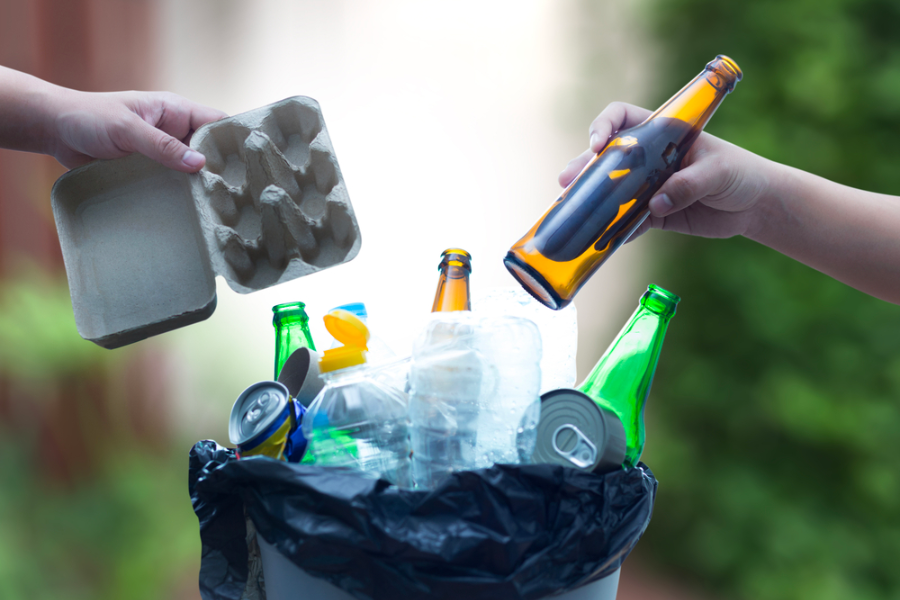Capturing Medical Plastics ‘Well Suited to Recycling’
Resource Recycling
The medical and research fields hold great potential for closed-loop plastic recycling as long as logistics can be solved, some in the industry recently said – and several companies are working to do just that.
The panelists discussed their work in an Oct. 3 Northeast Recycling Council webinar, “Reducing and Diverting Plastic Waste in Bio-Medical Laboratories and Facilities, Part 2: Diverse Solutions to Meet the Supply of Bio-Med Plastic Waste.”
Sam White, CEO of GreenLabs Recycling, noted that 30,000 tons of biopharma single-use plastic is disposed of every year globally, much of it recyclable. GreenLabs recycled 200,000 pounds in 2023, he added, but “you can see the huge gap that we have to fill” collectively.
James O’Brien, co-founder and CEO of Polycarbin, added that not only is much of the plastic disposed of by research labs recyclable, but it’s an ideal stream due to the “incredible homogeneity of plastic types,” the way that lab workflows are designed, and the interest of scientists in not only recycling but recycling accurately.
He noted that there is a “unique opportunity in labs” as well as hospitals, but hospitals have more plastic types and those working in them are under more time pressure, making it more difficult.
On the hospital side of the equation, Katherine Hofmann, sustainability manager at Eastman, said the company not only makes a significant amount of specialty plastics for the medical industry but is working in partnership with the Healthcare Plastic Recycling Council and the Alliance to End Plastic Waste on a hospital plastic recycling pilot in Houston. The pilot is largely handling pre-patient material, which doesn’t come into contact with patients.
She said 85% of the plastic that comes out of a hospital is clean and not contaminated, but the trick is finding space to store it in a hospital space and creating a system that works for nurses, who are short on time and highly focused on patient care.
“There’s a significant volume here of really clean, high-quality materials that are really well-suited to recycling, given the high performance requirements for plastics in the space,” Hofmann said. “They really have a high purity, there’s very few additives, very few colorants. They really are ideal.”
The goal of the pilot project is a medical recycling system that is economically viable at scale, she said.
“We’re really looking to establish recycling in a way that does not require subsidies and continues to run in the area after we set it up,” Hofmann said, adding that the groups are also compiling a playbook for setting up these systems.
Back in the lab, O’Brien emphasized the demand from scientists for more circular options. Polycarbin runs a closed-loop, brand-agnostic system, so it takes in lab plastics and remanufactures the resin into new, similar lab products. Over 1,000 labs are now participating, he said, and Polycarbin just launched PPE and nitrile glove recycling this year.
It plans to expand from its current markets in New England and California, growing into Atlanta in 2025, and recently announced a partnership with Labcon North America.
GreenLabs’ White said that the company decided to expand by partnering with hazardous waste disposal company Veolia, which allows them to collect, sterilize and recycle used pipette tips as well as the empty pipette tip boxes.
GreenLabs takes the flake it creates and manufactures a small benchtop holding bin for the recyclable materials they seek to collect, so scientists can see what their materials are being recycled into, White said.
“We can barely keep up with demand for this product,” White added, noting that scientists are often eager to participate. “They do such powerful work for human health, and they all want to provide a healthy environment as well.”
Share Post





